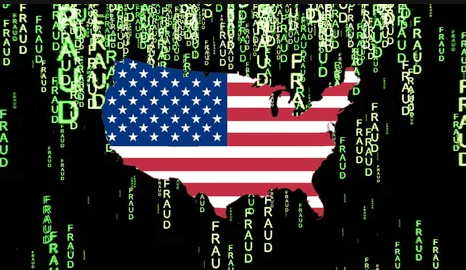Secure your Data with Inferno🔥, Use Code: INFERNO100
Massive Data Breach in the USA: Hackers Claim to Possess 2.9 Billion Social Security Numbers
Recent massive data breach in the USA, where hackers claim to have obtained 2.9 billion Social Security numbers along with other sensitive personal information. The piece examines the potential scale and impact of the breach, including the risks of identity theft and financial fraud. It also highlights the growing cybersecurity challenges and the urgent need for stronger data protection measures.
DEVELOPMENT AND ECONOMIC THREATS CYBERSECURITY
Phillemon Neluvhalani
8/16/20242 min read


In what could potentially be one of the largest data breaches in history, hackers have claimed to have stolen an astonishing 2.9 billion Social Security numbers (SSNs) along with other sensitive personal information. This alarming development has sent shockwaves across the United States, raising serious concerns about the security of personal data and the integrity of the nation's cybersecurity infrastructure.
The Extent of the Breach
While details of the breach are still emerging, the hackers have made bold assertions that they possess the SSNs of nearly 2.9 billion individuals. Considering that the U.S. population is approximately 330 million, these claims suggest that the breach may include not just American citizens but also deceased individuals, duplicate records, and potentially foreign nationals. The data haul reportedly also includes names, addresses, dates of birth, and other critical information that could be used for identity theft, financial fraud, and other malicious activities.
The Potential Fallout
If the hackers' claims prove true, this data breach would dwarf previous incidents, such as the 2017 Equifax breach that exposed the personal information of over 147 million people. The sheer volume of data potentially compromised is staggering, and the implications are far-reaching. With SSNs often used as key identifiers for various financial and government transactions, the risk of widespread identity theft is significant.
Experts warn that the fallout from such a breach could be devastating, with victims potentially facing years of financial hardship, damaged credit, and a loss of trust in institutions responsible for safeguarding their data. The ripple effects could extend to businesses, financial institutions, and even government agencies that rely on SSNs for verification and authentication.
Cybersecurity Under Scrutiny
This breach underscores the growing threat posed by cybercriminals and the increasing need for robust cybersecurity measures. The breach also raises questions about the effectiveness of current data protection protocols and whether organizations are doing enough to safeguard sensitive information.
In recent years, there has been a surge in cyberattacks targeting large corporations, government agencies, and healthcare institutions. The sophistication of these attacks has also increased, with hackers employing advanced techniques such as ransomware, phishing, and supply chain attacks to infiltrate networks and steal data.
Government and Public Response
The U.S. government has yet to confirm the full extent of the breach, but cybersecurity experts and lawmakers are already calling for an investigation. There are also calls for stricter regulations and penalties for organizations that fail to protect sensitive data. Additionally, there is a renewed emphasis on the importance of cybersecurity awareness and education for both businesses and individuals.
For the public, the breach serves as a stark reminder of the importance of monitoring personal financial accounts, changing passwords regularly, and being vigilant about potential identity theft. Individuals who believe they may be affected by the breach are encouraged to place fraud alerts on their credit reports, freeze their credit, and report any suspicious activity to the relevant authorities.
The reported data breach involving 2.9 billion Social Security numbers is a chilling reminder of the vulnerabilities that exist in our digital age. As investigations continue, it is crucial for both the government and private sector to take immediate action to mitigate the damage, strengthen cybersecurity defenses, and prevent future incidents of this magnitude. The true scale of the breach remains to be seen, but the potential impact on individuals, businesses, and the economy could be unprecedented.
As the situation unfolds, the need for greater transparency, accountability, and innovation in cybersecurity has never been more apparent.


